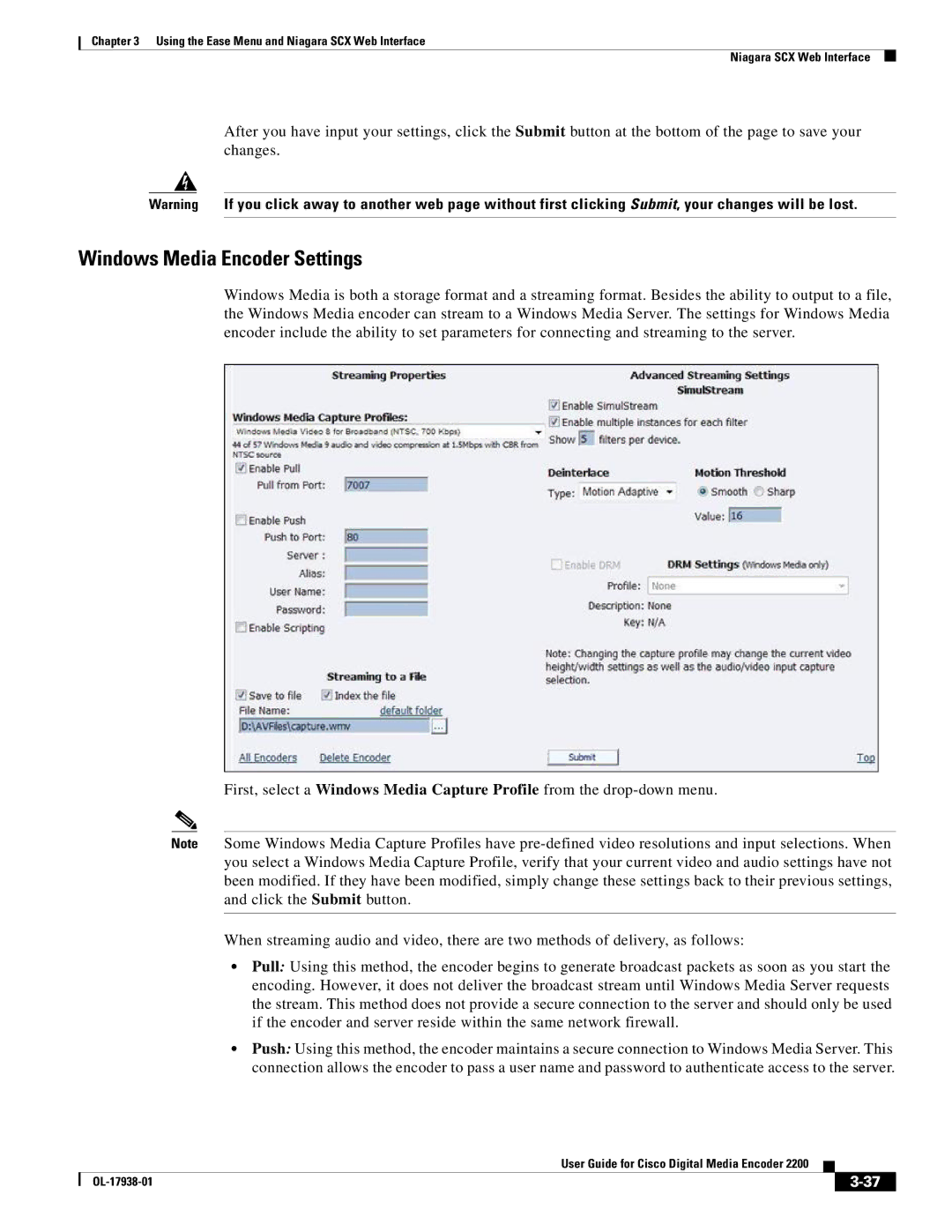
Chapter 3 Using the Ease Menu and Niagara SCX Web Interface
Niagara SCX Web Interface
After you have input your settings, click the Submit button at the bottom of the page to save your changes.
Warning If you click away to another web page without first clicking Submit, your changes will be lost.
Windows Media Encoder Settings
Windows Media is both a storage format and a streaming format. Besides the ability to output to a file, the Windows Media encoder can stream to a Windows Media Server. The settings for Windows Media encoder include the ability to set parameters for connecting and streaming to the server.
First, select a Windows Media Capture Profile from the
Note Some Windows Media Capture Profiles have
When streaming audio and video, there are two methods of delivery, as follows:
•Pull: Using this method, the encoder begins to generate broadcast packets as soon as you start the encoding. However, it does not deliver the broadcast stream until Windows Media Server requests the stream. This method does not provide a secure connection to the server and should only be used if the encoder and server reside within the same network firewall.
•Push: Using this method, the encoder maintains a secure connection to Windows Media Server. This connection allows the encoder to pass a user name and password to authenticate access to the server.
|
| User Guide for Cisco Digital Media Encoder 2200 |
|
| |
|
|
| |||
|
|
|
|
| |
|
|
|
| ||
